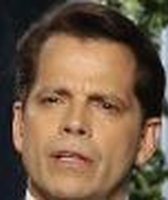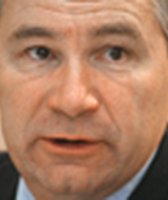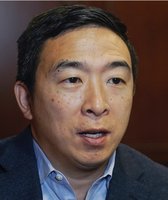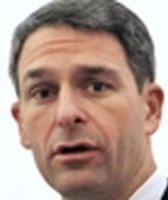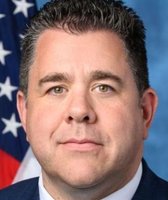Stand up for the facts!
Our only agenda is to publish the truth so you can be an informed participant in democracy.
We need your help.
I would like to contribute
Attorney General Jeff Sessions faced a barrage of questions from lawmakers about whether he misled Congress by claiming he was unaware of new links revealed between the Donald Trump campaign and Russian contacts.
Since Sessions’ last Capitol Hill testimony in October, two former campaign advisers said they discussed Russia-related outreach efforts and travel plans with Sessions during the campaign, including an offer to broker a meeting between then-candidate Trump and Russian President Vladimir Putin.
During his Nov. 14 testimony before the House Judiciary Committee, Sessions also faced questions about appointing a special counsel to investigate former Secretary of State Hillary Clinton.
These are the key moments from the Sessions’ hearing, with the facts and context.
New details about Sessions’ knowledge of campaign outreach efforts to Moscow came to light when Special Counsel Robert Mueller unsealed the guilty plea of former Trump campaign foreign policy adviser George Papadopoulos on Oct. 31.
Sign up for PolitiFact texts
According to the government’s charging document, Papadopoulos told Trump, Sessions and other campaign members at a March 31, 2016, national security meeting at Trump International Hotel in Washington that he could use his Russian connections to arrange a meeting between Trump and Putin. Papadopoulos had other communications with Russian government intermediaries during his role as a campaign adviser, the charging document states.
In a letter to Sessions leading up to the most recent hearing, Democratic members of the House judiciary panel said the facts surrounding the national security meeting "appear to contradict your sworn testimony on several occasions" — specifically, Sessions’ claims that he was not aware of any Trump campaign affiliates communicating with Russians.
During his testimony Nov. 14, Sessions sought to thread a fine needle with regard to Papadopoulos, maintaining that "I have answered every question as I understood them to the best of my recollection," while frequently referencing his incomplete memory of relevant facts and events.
Sessions told lawmakers he’d forgotten about the March 2016 meeting at the Trump hotel until he saw recent news reports, and that he continues to have "no clear recollection of the details of what he said at that meeting."
However, Sessions also said he recalls pushing back against Papadopoulos’ proposal to act as an intermediary between the Trump campaign and Russian government officials.
Sessions said he believes that during the Trump hotel meeting he wanted to make clear to Papadopoulos that "he was not authorized to represent the campaign with the Russian government" — and that he would have informed lawmakers about this interaction it if he had recalled it previously.
"I would gladly have reported it had I remembered it because I pushed back against his suggestion that I thought may have been improper," Sessions testified.
Sessions also faced scrutiny over whether he had knowledge of Russian outreach by Trump campaign adviser Carter Page.
Page told lawmakers he traveled to Moscow in July 2016 to make a speech at a university. On his trip, he met Russian Deputy Prime Minister Arkady Dvorkovich and a high-ranking official at the Russian oil company Rosneft.
Page said he informed Sessions about his plans to travel to Russia — but downplayed the significance of their communication.
"Back in June 2016, I mentioned in passing that I happened to be planning to give a speech at a university in Moscow," Page told the Washington Examiner on Nov. 2, adding that the trip was "completely unrelated to my limited volunteer role with the campaign."
Sessions told lawmakers he does not dispute Page’s account but that he doesn’t recall discussing the matter with him following a dinner in Washington.
"While I do not challenge his recollection," Sessions said, "I have no memory of his presence at a dinner at the Capitol Hill Club or any passing conversation he may have had with me as he left the dinner."
While Democratic lawmakers peppered Sessions with questions about Trump-Russia ties, several Republican members trained their fire on Trump’s former rival, Hillary Clinton.
On the eve of the hearing, the Justice Department sent a letter to members of the committee responding to requests that the department investigate Clinton’s role in the sale of uranium to Russia’s nuclear energy agency and alleged unlawful conduct by the Clinton Foundation.
In its letter, the department said Sessions has "directed senior federal prosecutors to evaluate certain issues" the committee raised, and asked the prosecutors to report directly to Sessions and the deputy attorney general.
The prosecutors "will make recommendations as to whether any of the matters not currently under investigation should be opened, whether any matters currently under investigation require further resources, or whether any matters merit the appointment of a Special Counsel," the department stated.
Some Republican lawmakers suggested there’s enough evidence now to ramp up a probe against Clinton.
"I guess my main question is what’s it going to take if all of that, not to mention the dossier information, what’s it going to take to actually get a special counsel?" said Rep. Jim Jordan, R-Ohio, referring to allegations that the Clinton campaign financed the controversial Fusion GPS dossier containing derogatory information about Trump.
But Sessions demurred, saying "it would take a factual basis that meets the standards of the appointment of a special counsel." He added that the department will "use the proper standards" and "sometimes we have to study what the facts are and to evaluate whether it meets the standard required a special counsel."
Sessions did not give a definitive answer when asked if he would recuse himself from investigating Clinton. (He recused himself from investigations into Russian interference in the 2016 election after it was revealed that he’d failed to disclose meetings with Russian Ambassador Sergey Kislyak during the campaign.) But he emphasized the department is beholden to the rule of law, not political winds.
"The Department of Justice can never be used to retaliate politically against opponents," he said. "That would be wrong."
Our Sources
House Judiciary Committee hearing, Nov. 14, 2017
PolitiFact, "What you need to know about newly revealed Trump campaign-Russia ties," Nov. 9, 2017
PolitiFact, "What you need to know about Hillary Clinton, Russia, and uranium," Oct. 24, 2017
Department of Justice letter to House Judiciary Committee, Nov. 13, 2017
Statement of the Offense, U.S. v. George Papadopoulos
Testimony of Carter Page, House Intelligence Committee, Nov. 2, 2017
Washington Examiner, "Carter Page: Telling Jeff Sessions of Russia trip 'was as irrelevant then as it is now,' " Nov. 2, 2017






